Eid al‑Fitr: The Festival of Giving
Category :
Islam
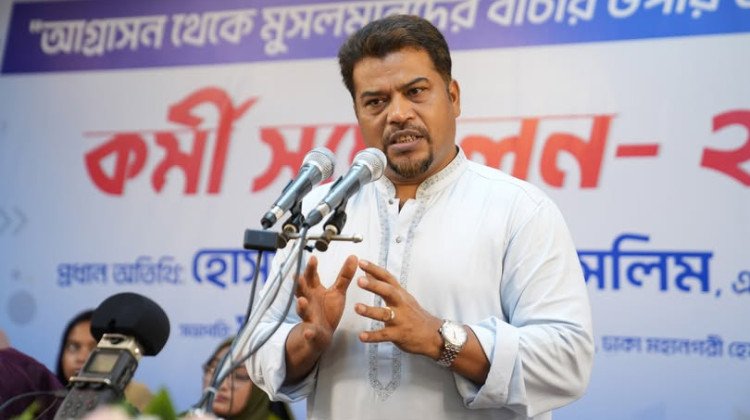
Author ::
Salzar Rahman Sabu
Feb 27, 2026
visibility
993 Read
Righteousness is not merely turning your face towards the east or the west. Rather, true piety is to believe in Allah, the Day of Judgment, the angels, the prophets, and to spend wealth out of love for Him—for relatives, orphans, the poor, travelers, beggars, and for freeing slaves. (Surah Al-Baqarah 177)
Every practice in Islam strikes a balance between worldly and eternal welfare. Eid al-Fitr, likewise, aims to promote material well-being, ultimately enriching one’s afterlife. But before we discuss how, let’s understand the essence of Islam.
It is crucial to remember that Islam is not just a religion of rituals like many others. Most religions involve visiting places of worship, reading scriptures, performing rites, and worshipping the Creator to attain salvation.
Sadly, many Muslims today view Islam in the same limited way. However, Islam does not confine itself to rituals for pleasing God or securing the afterlife. Islam teaches that the path to divine pleasure and eternal salvation lies in establishing peace, justice, and order in human life here on Earth.
To establish peace in this world, a complete and flawless system is needed to guide all aspects of life—personal, moral, spiritual, familial, social, legal, economic, political, administrative, and international. Islam presents such a comprehensive system of life, leaving no aspect untouched.
Social harmony largely depends on interpersonal relationships. If people care about their neighbors and stand by each other in times of need, everyone feels secure.
The Prophet (peace be upon him) said, “Your neighbors include the forty houses around you. One who eats to his fill while his neighbor goes hungry is not a believer. When cooking, add extra broth and share it with your neighbor. One whose neighbor does not feel safe from his harm will not enter Paradise.”
Thus, Islam emphasizes building strong social bonds. In today’s materialistic world, individuals live like isolated islands, expecting the state to fulfill all basic needs. The more educated people become, the more self-centered and indifferent they grow.
In cities, most people don't even know who lives next door, let alone check if they have food to eat. In such an alienated society, no one can truly feel safe or happy.
To eradicate poverty, equitable distribution of wealth is essential. In a capitalist society, wealth accumulates in the hands of a few, while the majority live below the poverty line.
Recently, it was reported that 43% of Bangladesh’s population has fallen below the poverty line. Due to COVID-19, an additional 24.5 million people became poor.
Yet, the number of millionaires is also rising. According to the central bank, by the end of December, there were 153.5 million bank accounts in the country, with total deposits amounting to 17.49 trillion taka.
Among these, 116,908 accounts held over 10 million taka each. Within a year, the number of millionaire account holders increased by 6,962.
(Source: The Business Standard, March 14, 2024)
Economists note that income inequality is growing—rich people are becoming wealthier, and while some poor are improving, the rich are progressing much faster. This imbalance must be addressed.
However, capitalism inherently causes such inequality. To eliminate this, the divine economic system is necessary. Islam forbids usurious economics and capitalism, as it is based on exploitation. Instead, it promotes a donation-based economy.
Allah says, “In the wealth of the rich, there is a rightful share for the poor and the deprived.” (Surah Adh-Dhariyat 19)
To deliver this rightful share, Islam provides multiple avenues—Zakat, Ushr, Fai, Khums, Kharaj, Jizya, Qisas (mandatory state-collected dues), and individual efforts like Sadaqah, Kaffara, Qard-e-Hasan, Fitrana, Fidya, vows, endowments (Waqf), gifts, lost-and-found funds, family obligations, dowry, distribution of Qurbani meat, donation of fruits, well water, pasture grass, arranging iftar, and more.
Just as water poured from a high place fills every pit and spreads evenly, similarly, the wealth of the rich should first eliminate extreme poverty and eventually lead to collective prosperity.
The Qur’an lists the foremost expenditure as for the cause of establishing the religion. A believer is defined as one who strives in the path of Allah with both life and wealth (Surah Hujurat 15). Allah says: “Indeed, Allah has purchased the lives and wealth of the believers in exchange for Paradise.” (Surah At-Tawbah 111)
To attain Paradise, two major conditions are laid out in the Qur’an: firm belief in the Oneness of Allah (Tawhid) and striving with life and wealth in His cause. After Tawhid and Jihad, verses about charity appear most frequently.
Misers are warned of Hellfire (Surah Tawbah 34), and they are considered excluded from the faith (Surah Muhammad 38).
One of the core objectives of Ramadan is to cultivate moderation, not miserliness, but frugality. The goal is not to hoard, but to donate the saved expenses during fasting to those in need.
Experiencing hunger through fasting makes the affluent empathetic toward the poor, inspiring them to help. This contributes to solving national economic crises.
The Prophet (peace be upon him) encouraged his followers to be more charitable in Ramadan. Charity in this month is rewarded seventy times more—an unlimited divine bonus.
It is narrated: “The Messenger of Allah (peace be upon him) was the most generous among people, and he would be even more generous in Ramadan when Jibreel (peace be upon him) met him.” (Muslim 2308)
Priority in charity should be given to relatives and neighbors. The Prophet encouraged feeding the poor during iftar and also urged sharing with neighbors, as this builds communal harmony, essential for a peaceful society. He said: “Whoever gives iftar to a fasting person will receive the same reward.” (Tirmidhi)
Buying new clothes, prayer rugs, caps, rosaries, or perfumes for Eid is not mandatory. Helping the unemployed and the poor is far more virtuous.
The word Fitr (from Eid al-Fitr) refers to the morning meal with which fasting ends. The message is: no one should remain hungry on Eid morning.
To ensure this, Islam instituted Fitrana (Zakat al-Fitr). A minimum amount equivalent to a meal’s cost should be determined, though people may donate more. Sadly, today even the wealthy often give only the bare minimum—about 150-200 taka—while spending extravagantly on Eid shopping.
Abdullah Ibn Umar (RA) reported that the Prophet made Zakat al-Fitr obligatory for every Muslim—slave or free, male or female, young or old—one sa' (approx. 3 liters) of dates or barley, and instructed it be paid before going to the Eid prayer. (Bukhari, Muslim, Ahmad)
Thus, anyone with more food than needed for their family during the night and day of Eid must give Fitrana. The recipients can be Muslim or non-Muslim. The Prophet’s companions followed this strictly. Once, Abdullah Ibn Umar (RA) returned home to find a goat had been slaughtered. He immediately asked: “Did you send some to my Jewish neighbor?”
This is the essence of Islam—rising above communal divides to address human suffering. After a month of charity—Sadaqah, Zakat, Fitrana, Kaffara, Iftar, Fidya, Hadiya—Eid is about unity. It washes away the heart’s bitterness, strengthens brotherhood, and brings harmony.
Eid al-Fitr strengthens spiritual ties among believers and enriches national economic equality. In truth, it is the giver who benefits most through spiritual purification and blessings in wealth. Therefore, Ramadan is a month of spiritual cleansing, and Eid al-Fitr is the Festival of Giving.
Unfortunately, just like other aspects of Islam, the true purpose of Eid has been distorted. Ramadan returns each year, but spiritual refinement doesn’t. The crescent of Shawwal appears, but its smile fades in the cry of a struggling society.
Images Related to this Post
Related Post
Search
Popular Post
Recent Post
Tags
Hezbut_Tawheed
Imam Hossain Mohammad Salim
Bangladesh Violence
Religious Extremism
Mob Attacks
Human Rights Violations
Minority Persecution
Rangpur Attacks
Jamaat-E-Islami
Hefazat-E-Islam
Tawheed
Muslim Ummah
Islamic Unity
Shirk
Kufr
Islamic Revival
Kalima-E-Tawheed
Obedience To Allah
Deen-Ul-Haq
Hizb-Ut-Tawheed
Ram Temple
Third Temple
Ayodhya
Jerusalem
Religious Politics
Babri Masjid
Al-Aqsa
Zionism
Hindutva
Netanyahu
Religious Hate
Muslim Unity
Noakhali Conference
Imam Salim
Islamic Movement
Shahidi Jame Mosque
Ht Members Conference
Bangladesh Religious Persecution
Islamic Reform Movement
Extremist Violence
Human Rights Bangladesh
Sonaimuri Noakhali Attack
Political Extremism Bangladesh
Faith-Based Violence
Eid Al‑Fitr
Zakat Al‑Fitr
Ramadan Charity
Islamic Social Justice
Community Harmony
Bangladesh Poverty
Islamic Economy
Sadaqah
Fitrana
Eid Unity
Arab History
Islamic Governance
Caliph Umar
Social Transformation
Women’s Rights In Islam
Justice In Islam
Political Systems
Islam Vs Democracy
Islam And Knowledge
Islamic System
Prophet Muhammad
Farewell Sermon
Hajj
Global Peace
Human Rights In Islam
Dhul-Hijjah
Arafat Sermon
Islam Vs Un Charter
Unemployment In Bangladesh
Education System Failure
Educated Unemployment
Jobless Graduates
British Education Legacy
Youth Crisis
Hezbut Tawheed Views
Bids Report
Ssc To Masters Job Race
Middle Class Dilemma
Kerani Mentality
Excessiveness In Religion
Religious Distortion
Overinterpretation Of Islam
Misguided Enthusiasm
Warnings Of The Prophet
True Islam
Spiritual Clarity
Abandoning The Mission
Chormonai Pir
Desherpotro
Islamic Reform
Persecution In Bangladesh
Religious Violence
Jamaat-E-Islami Attacks
Islamic Truth Movement
Women And Knowledge
Islamic Feminism
Gender Roles
Social Awareness
Muslim Women
Female Empowerment
Islamic History
Qur’anic Guidelines
Obeying Allah’s Commands
Islam And Suffering
Workers' Rights In Islam
Labor Justice
May Day Islam
Islamic Society Model
Chashirhat Development
Imam Hossain Mohammad Selim
Islamic Brotherhood
Fair Wages
Islamic Military Strategy
Tawheed-Based State
National Security
Qur’anic Warfare
Mujahideen
Peacekeeping
Modern Islamic Army
Military Training
Ummah Defense
Sharia Governance
Southasia
Extremism
Bangladesh
India
Pakistan
Myanmar
Jihad
Islamophobia
Radicalism
Resistance
Conflict
War
Terrorism
Proxywar
Bjp
Hasina
Ghazwa
Kashmir
Rohingya
Arsa
Militancy
Ideology
Unity
Awareness
Injustice
Arms
Geopolitics
Gaza
Hypocrisy
Taliban
Alqaeda
Afghanistan
Syria
Iraq
America
China
Russia
Media
Violence
Oppression
Nationalism
Muslim
Islam
Justice
Youth
Leadership
Sovereignty
Hezbuttawheed
Mosque
Governance
Society
Administration
Education
Military
Economy
Women
Culture
Law
Quran
Hadith
Prayer
Madinah
Baytalmal
Amir
Discipline
Khutba
Transparency
Spirituality
Training
Morality
Ummah
Prophet
Sharia
Community
Peace
Development
Security
National
Khutbah
Sabr
Zakat
Sufism
Equality
Mosquesystem
Participation
Aqiqah
Accountability
Tradition
Modernity
Ummati Muhammad
Unity In Islam
Sunnah
Islamic Teachings
Muslim World
Deen Of Islam
Security Crisis
National Unity
Political Unrest
Military Vulnerabilities
Strength
Solidarity
Disunity
Muslim Nations
Women's Rights
Rufaidah Panni
Eid Congregation
Islamic Women Empowerment
Social Justice
Equality In Islam
Momen
Kafir
Mushrik
Allah's Laws
Faith In Islam
Belief In Allah
True Believers
Kalimah
Shariah
Justice And Peace
Political Parties
Multiparty Democracy
Political Factionalism
Islamic Political System
Democracy Vs Islam
Secularism
Political Ideologies
Islamic Law
Political Vision
Governance Without Parties
Political Stability
Islamic State
Shura System
Islamic Perspective
Women’s Reform Commission
Family Law
Inheritance Law
Labor Recognition
Shariah Law
Gender Equality
Religious Opposition
Feminist Movement
Human Rights
Political Debat
Arab Society
Islamic Economic Justice
Military Transformation
Education In Islam
Judicial Independence
Accountability In Islam
Islam And Democracy
Societal Transformation
Governance Systems
Surah Yaseen
Islamic Guidance
Religious Work
Misguidance
Imam Role
Religious Commercialization
Truth And Falsehood
Religion And Society
Quranic Teachings
Ethical Leadership
Spiritual Struggle
Religious Scholars
Religious Corruption
Quranic Verses
Islamic Scholars
Prophet Muhammad (S.a.w)
Military Nation Of Islam
Sahabah
Lost Legacy
Ummah Of Muhammad
Jehad
Qetal
Islam And Violence
Islamic Leadership
State Vs Individual Struggle
Allah's Help
Islamic Reflection
Divine Support
Muslim World Crisis
Quran Teachings
Islamic Awakening
Qurbani
Bangladesh Politics
Eid Ul Adha
Islamic Sacrifice
Bangladesh Crisis
Global Conspiracy
Sacrifice
Labour Rights
Employment Crisis
Bangladesh Economy
Wage Gap
Inflation
Unemployment
Education Reform
Job Creation
Income Inequality
Post-Pandemic Economy
Eid-Ul-Azha 2025
Bangladesh Eid Congregation
Eid Prayer 2025
Women's Participation
Peace & Justice
Bangladesh Religious Events
Eid-Ul-Azha Message
Khilafah
Global Oppression
Islamic Festivals
Quranic Guidance
Spiritual Sacrifice
Ibrahim's Sacrifice
Eid Mubarak
Peace Through Tawheed
Women's Reform Debate
Bangladesh Women's Rights
Hezbut Tawheed Position
Islamic View On Women's Rights
Legal Reforms Bangladesh
Family Law Reform
Inheritance Rights
Sharia Law Bangladesh
Women's Equality
Western Influence
Religious Groups Debate
Gender Equality Islam
Islamic Social Solutions
Women's Dignity In Islam
Islamic Solutions
Beyond Politics
Labor Rights
Class Struggle
Economic Solutions
May Day Analysis
Economic Justice
Divine Accountability
Global Economic Crisis
Capitalism Vs Islam
Socialism Vs Islam
Savar Attack
Ishwardi Attack
Religious Fanaticism
Political Manipulation
Islamic Extremism
Government Response
Democratic Threats
Islamic Teachings Misuse
Radical Ideology
Communal Conflict
Radical Groups In Bangladesh
Terrorism In Bangladesh
Islamic Rights
Mosque Access
Eid Prayer
Muslim Women Empowerment
Prophet Muhammad Teachings
Women In Mosques
Women Rights In Islam
Gender Equality In Islam
Masjid An-Nabawi
Women's Role In Islam
Misconceptions About Women
Women Participation In Mosque
Eid Khutbah 2025
Islamic Sermon
Hossain Mohammad Selim
Bangladesh Eid
Qurbani Meaning
Women In Islam
Rufaydah Panni
Islamic Congregation
Female Participation In Eid
Chashirhat Eid
Palestine Solidarity
Eid Prayer Bangladesh
Women In Eid
Kushtia Rally
Gaza Crisis
Muslim Persecution
Bangladesh News
Peace Movement
Humanity
Divine Law
Social Reform
Religious Harmony
Truth
Call To Action
Palestine
Dajjal
Islamic Struggle
Mohammad Bayazid Khan Panni
Genocide
Oic
Protest
National Press Club
Rangpur Attack
Religious Reform
Karwan Bazar Protest
Terrorist Attack
Law And Order Failure
Emamht
Ht_In_Brief
Pabnaattack
Justiceforvictims
Humanchain
Politicalviolence
Legalreform
Endimpunity
Bangladeshjustice
Hezbuttawheedleaders
Demandjustice
Pabnapressconference
Policeinaction
Proposedgovernancesystem
Islamicstatesystem
Allahslaw
Economicreform
Educationreform
Capitalismcritique
Dhakaevent
Purposeofcreation
Humancreation
Khalifah
Allahsplan
Divineguidance
Adamsstory
Islamicteachings
Peaceandjustice
Sovereigntyofallah
Lailahaillallah
Islamiccreed
Aqidah
Islamicfaith
Iman
Deen
Peaceinislam
Purposeofislam
Beliefsystem
Faithandworship
Why
Escalate
Mohammad Bayazeed Khan Panni
Hossain Mohammad Salim
Religious
Extremist
Interfaith
Situation
Ultimatum
Threats
Extremist Attack
Attack
Movement
Barakat Hossain Osama
United Kingdom
Conservative Party
Donald Trump
Secular Leadership
Fanatical Populace
Fanatical
Populace
Religion
Extensive Damage
Catastrophic Flooding
High School
Urgent Help Needed
Devastated
Allah
Modus Operandi
Messenger
Believer
Messenger Of Allah
People
Human
Jame Mosque
A Cornerstone
Cornerstone
A Just Society
The Establishment
Establishment
History
Messenger Muhammad
Simple And Straightforward
Who Made
The Simple
Complex
Way Of Life
Jannah
Way To Jannah
Civilization
Religious Figures
Survive
Politics
Worship
Establish
Goals And Objectives
System Of Life
Money
Tolerance
Madness
Mo'men
Today’s
Educated
Needs
Corruption
British
Government
Democracy
Communism
Socialism
Political
Secular Education
Responsible
The Reign
Hindu
Terrifying
Slavery
Jewish Conspiracy
The Protocols Of The Elders Of Zion
Politician
Give And Take
Education System
European
Population
Mentality
Slave
Preface
Children
The Quran
The Miracle
Creator
The Creator
Creation Of Man
The Creation Of Man
Premise
First Words
Aqida
The Programme
The Messenger
Mankind
Actual
Concept Of Islam
Crossroads
Mojeza
The Call
Panni
The Author
Qur'an
Process
The Process
A Person
Tabook
The Special Three
Special
The Tabook
The Ahzab
Ahzab
Khandak
The Uhud
Uhud
The Badr
Badr
Ebadat
Ma'bud
Vicegerent
Worshipper
Aqaed
The Reasons
Reasons
Reason
Adam
Eblis
Khalifa
Angels
Adam And Eve
Adam And Hawa

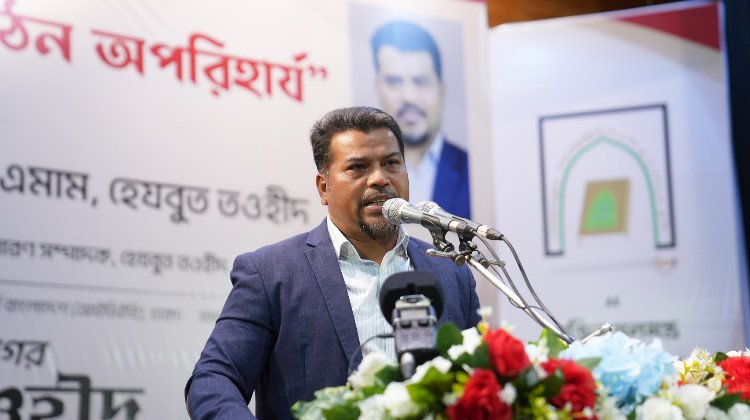


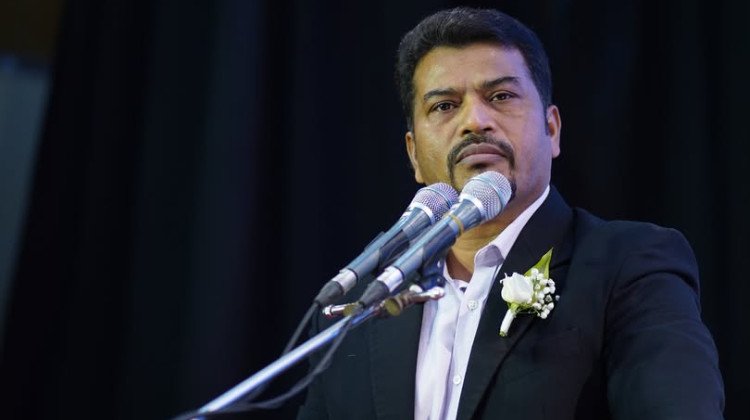
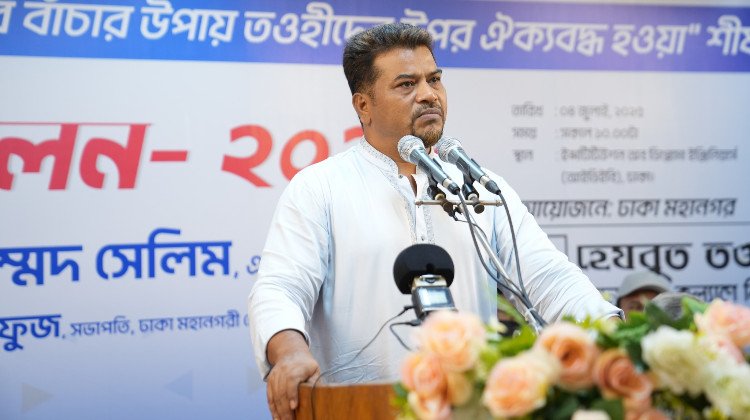
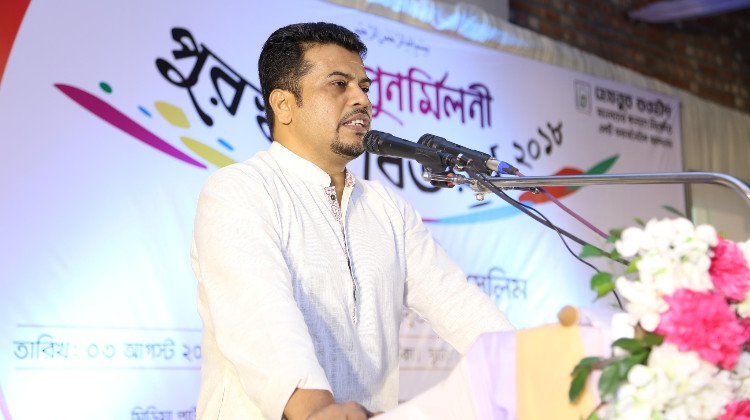

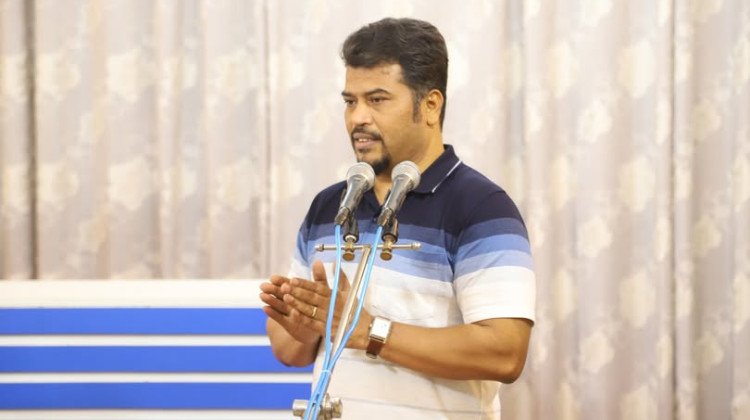
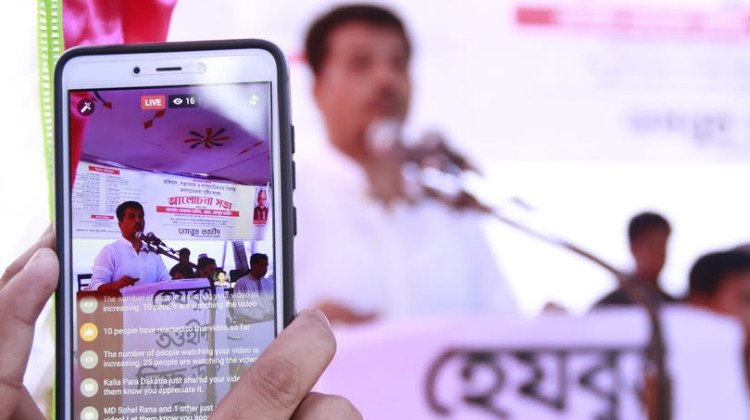
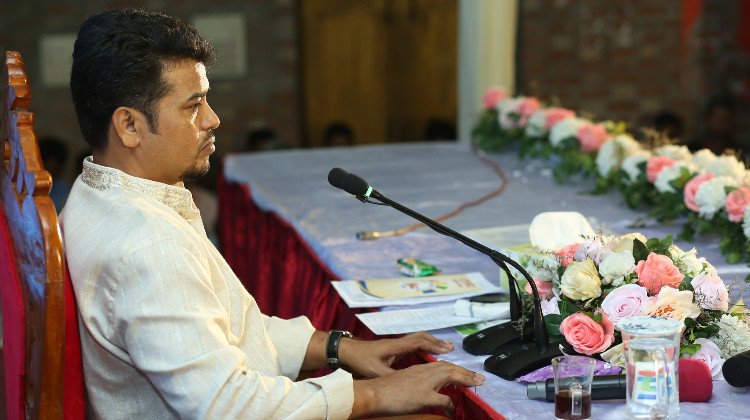


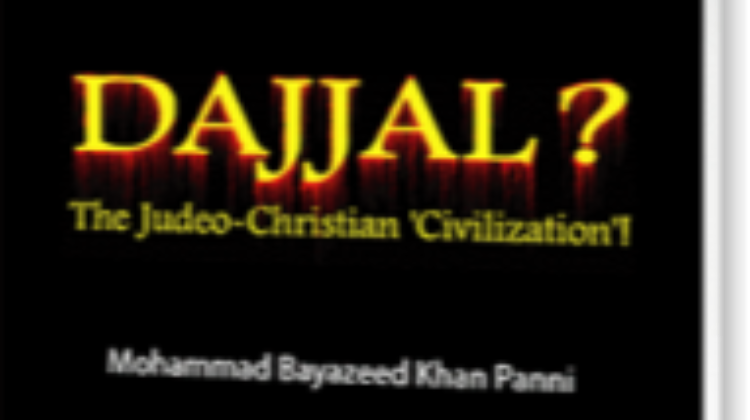


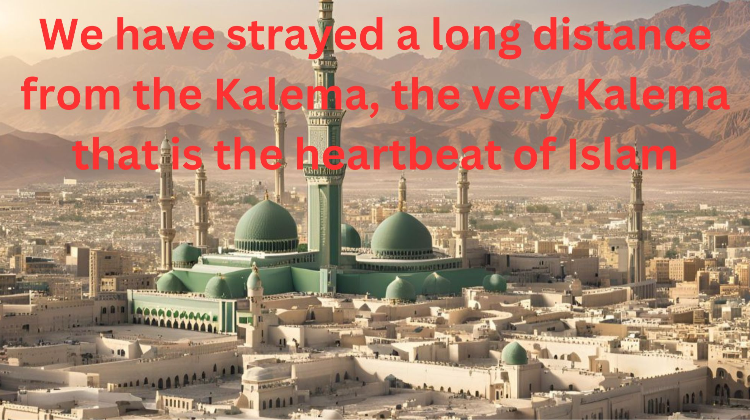


Leave a Comment